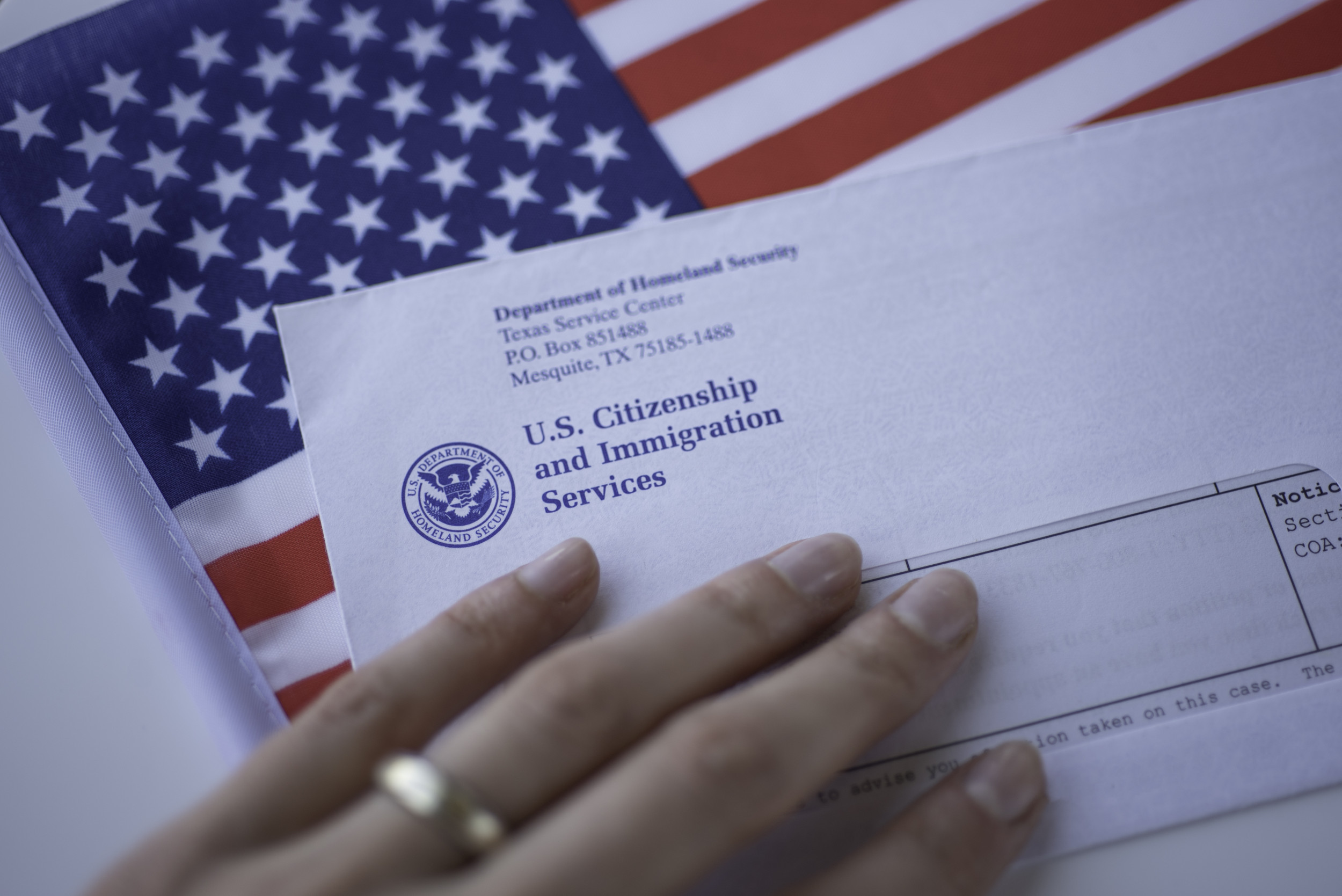A Filipino immigrant and green card holder with prior criminal charges for distributing controlled substances was detained at an airport and is currently in U.S. Immigration and Customs Enforcement (ICE) custody.
Sonny Lasquite was detained after a vacation in the Bahamas by U.S. Customs and Border Protection (CBP) on July 28 at Charlotte Douglas International Airport in Charlotte, North Carolina, according to relatives who spoke with GMA News Online.
Why It Matters
Lasquite’s arrest was due to a red flag in the federal system linked to a 2012 narcotics case. ICE records reviewed by Newsweek show Lasquite currently being held at the Stewart Detention Center in Stewart County, Georgia.
Lasquite’s detention illustrated how lawful permanent residents could face immigration enforcement after arrests at ports of entry, raising questions about the consequences of past criminal convictions for long-term residents and the humanitarian impact on families that rely on detained relatives for financial and caregiving support.
What To Know
Lasquite reportedly lived in the U.S. for 23 years and worked as a banquet server in Las Vegas.
From roughly December 2010 to about August 2012, Lasquite “intentionally and knowingly” possessed with the intent to distribute Schedule IV narcotics, including diazepam, alprazolam, zolpidem and carisoprodol, according to court records in the Southern District of New York reviewed by Newsweek.
But records indicate that he promptly took responsibility for his actions and cooperated with the federal government in identifying charged and uncharged co-conspirators. A 2014 sentencing memorandum by former U.S. Attorney Preet Bharara said that Lasquite helped stop narcotics distribution practices and led to the prosecutions of others.
“You are, as the government points out, the only defendant who cooperated,” Bharara said on September 9, 2014. “You did that at some risk to yourself. I think there needs to be recognition of that and proportionate sentencing between you and the other defendants.
“I feel pretty confident that you’re not going to commit any crimes in the future, and I join the government in wishing you well and hopefully being able to put this behind you.”
The court ultimately sentenced Lasquite to time served and no additional prison time, ordering him to pay $200.
Lasquite has put that time of his life behind him, according to family and friends, who created a GoFundMe on Saturday to raise $30,000 for legal representation, filing fees, and “essential expenses to fight for Sonny’s right to remain in the U.S. and reunite with his family.”
As of Monday morning, nearly $11,600 had been raised from 56 donations. The fundraiser was started by Vivian Hirano, of Las Vegas, who writes that Lasquite “has had no further legal troubles and has been a law-abiding, contributing member of his community” since his 2012 criminal conviction.
Newsweek reached out to Hirano via the GoFundMe page for comment.
“Sonny Lasquite is more than a name—he is a beloved son, brother, uncle and friend whose kindness has touched countless lives,” the GoFundMe says. “For decades, Sonny has lived peacefully in the United States, working hard, caring for his elderly mother, and always putting others before himself. He is the kind of person who never hesitates to help, greet you with a warm smile, or offer comfort when you need it most.”
Aside from Lasquite’s detention causing his mother’s health to “decline under the weight of this stress,” his own health is reportedly taking a toll. Lasquite has purportedly faced medical neglect during detention, including delayed access to his blood pressure medication and proper care for his recent fever, according to Hirono.
What People Are Saying
Immigration attorney Rosanna Berardi told Newsweek on Monday that cases like these are “not new and have been happening for decades.”
She said: “Under current U.S. immigration law, lawful permanent residents—even those who have lived in the country for most of their lives—remain vulnerable to removal proceedings if they are convicted of certain drug-related offenses. This is true regardless of how much time has passed since the conviction or how significantly they have contributed to their communities in the years afterward.
“Because of this, we strongly encourage our clients to pursue U.S. citizenship as soon as they are eligible. Naturalized citizens cannot be deported for criminal convictions in the same way, providing a crucial safeguard against the devastating consequences of removal.”
Vivian Hirano on Sonny Lasquite’s GoFundMe page: “Sonny is the primary breadwinner of his family, providing both financial and emotional support to his loved ones. His income helps cover essential expenses, including his elderly mother’s medical needs and daily living costs.”
Department of Homeland Security Secretary Kristi Noem on Friday in Illinois called allegations of ICE detaining immigrants without criminal convictions “false,” according to NewsNation: “I’m here today because elected leaders in Illinois are ignoring the law. In fact, they’re being obstructionists when it comes to getting dangerous criminals off of their streets. They’re deciding that dangerous criminals that are murderers, rapists, money launderers, have committed assaults, and that are trafficking children are more important than the families who live in the communities here.”
What Happens Next
Lasquite’s case was pending in immigration custody, and his legal options were constrained by immigration statutes that treat certain controlled-substance convictions as grounds for removal.





